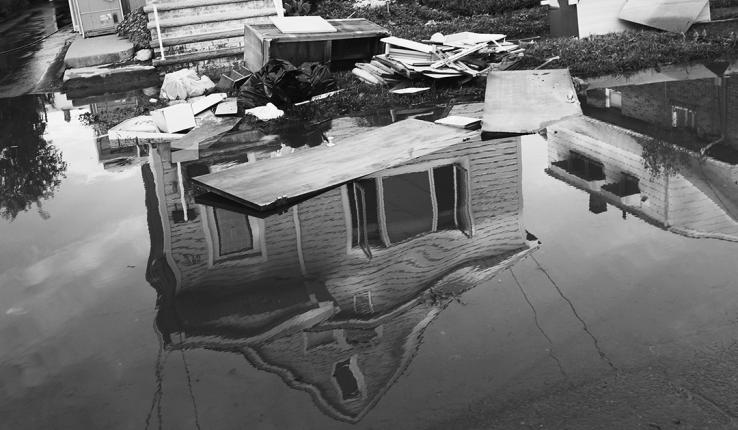Lehigh Engineers Among Group Awarded $2.5 Million Federal Transportation Grant

As part of their Structural Behavior Laboratory course, Lehigh University students tested this 10-foot-high concrete column in the 5,000,000-pound universal testing machine in Fritz Engineering Laboratory. The ability to conduct such full-scale testing in an academic setting is a uniquely Lehigh experience.
Engineering faculty at Lehigh’s P.C. Rossin College of Engineering and Applied Science are included in a consortium that was recently awarded $2.5 million by the U.S. Department of Transportation (US DOT) in its first round of funding for Regional University Transportation Centers. The multi-year grant is authorized under the Fixing America’s Surface Transportation Act or the FAST Act, the first federal law in more than a decade to provide long-term funding certainty for surface transportation infrastructure planning and investment.
The $2.5 million grant will establish the Center for Integrated Asset Management for Multi-Modal Transportation Infrastructure Systems (CIAMTIS). The group, led by Pennsylvania State University, University Park, is comprised of seven universities, which includes—in addition to Lehigh—George Mason University, the University of Delaware, Virginia Tech, Morgan State University, West Virginia University and Pennsylvania State University, Altoona.
According to the CIAMTIS team, the American Society of Civil Engineers (ASCE) estimates that, over the next 10 years, a $1.0 trillion investment gap will occur for our nation’s transportation infrastructure systems. Support for new construction, upgrades, rehabilitation and maintenance across a wide variety of transportation modes is needed. Due to chronic shortfalls in transportation funding, it is imperative that these resources be allocated efficiently.
“Using resources efficiently means extending the life of infrastructure system components, like railway and highway bridges, before obsolescence and safety issues become critical,” says Richard Sause, the Joseph T. Stuart Professor of Structural Engineering and leader of the Lehigh team.
Sause, who is also director of the Advanced Technology for Large Structural Systems Engineering Research Center (ATLSS) at Lehigh, adds: “Lehigh is an internationally recognized leader in infrastructure research and we offer a unique combination of expertise in measurement and simulation of infrastructure performance, as well as experimental facilities and expertise, to address key research questions associated with extending the life of our nation’s infrastructure.”
Projects undertaken by the Penn State-led consortium will fall under the FAST research priority called “Improving the Durability and Extending the Life of Transportation Infrastructure.” The team’s work will support multiple modes of transportation including highways, rail, transit, air, maritime and inter-modal transportation, with an emphasis on highways and rail. Members of the consortium will pursue research, education, and technology transfer activities in the following three areas: application of innovative materials and technologies; condition assessment and health monitoring; and infrastructure management and innovative financing.
In addition to Sause, the Lehigh research team includes: Liang Cheng, associate professor of computer science and engineering; Dan Frangopol, the Fazlur R. Khan Endowed Chair of Structural Engineering and Architecture; Ian Hodgson, senior research engineer, ATLSS Engineering Research Center; Shamim Pakzad, associate professor of civil and environmental engineering; Stephen Pessiki, professor of civil and environmental engineering; and Martin Takáč, assistant professor of industrial and systems engineering.
The ATLSS Engineering Research Center has a long tradition of partnering and conducting research projects with bridge-owning public agencies and private-sector companies involved in design, construction, assessment, maintenance and repair of highway bridges. The Center’s multi-directional testing laboratory permits three-dimensional testing of highway, rail and transit bridges at full scale.
The ATLSS Center also operates a nationally recognized bridge assessment and monitoring program which performs field measurement and evaluation studies of numerous in-service bridges each year. Numerical/analytical capabilities at the ATLSS Center include the Computational Laboratory for Life-Cycle Structural Engineering.
Read more about Lehigh University’s latest infrastructure-related research here.
Posted on:




